Displaying items by tag: The Wolf's Head Trophy
2011 ISORA Scoring and Race Programme Up for Debate
The first is a proposed race schedule for 2011. Due to the number of races and the large variation in the distance and complexity, Ryan is proposing to identify some of the main races as those that qualify for the Overall ISORA Series - "The Wolf's Head Trophy". The other races will qualify for another lesser series that involves all races. Trophies and prizes will be awarded for all races irrespective of status.
The second issue is the proposed use of the High Score system and incorporating a difficulty coefficient to reflect the type of race involved. The use of the high scoring system will also be preferable when dealing with a series where many boats will not do most of the races and the variation in the fleet numbers can be significant.
Stephen Tudor of PSC has used the results from 2010 to illustrate the proposed system and these are attached below. Unfortunately (or fortunately) in the example the places of the top boats are generally unaltered but this is due to the fact that the top boats did most or all the races.
Ryan also says he has contacted RORC and they have agreed in principle to accept any ISORA race of over 75 miles and incorporating a night passage as a qualifier for next year's Fastnet Race.
The main purpose of the exercise is to encourage boats to do as many of the races as possible but not the penalise them too much for races missed. It is also to reward those boats more that win in large fleets over a win in a smaller fleets. Day races will be used to encourage and entice more new entries to ISORA in 2011.
The Race Schedule and Scoring System will be agreed at the AGM.





























































